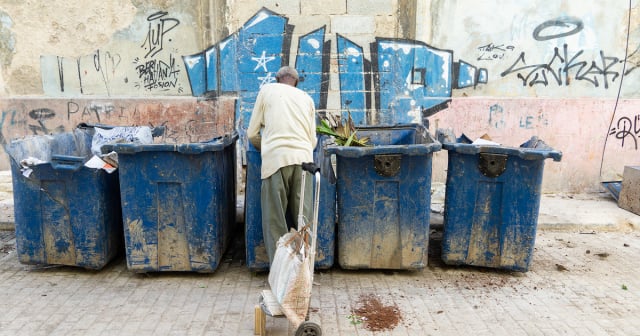Miguel Díaz-Canel has launched a new campaign against corruption in Cuba, amid social media scandals involving his stepson Manuel Anido and Sandro, the grandson of Fidel Castro.
From December 2 to 7, a national exercise for the prevention and confrontation of crime, corruption, illegal activities, and social indiscipline will take place in Cuba. Its stated purpose is to strengthen the work of state bodies and social organizations to ensure safety and public order.
However, the exercise comes amid the regime's discredit, and many people are wondering whether the high-ranking officials in the country will be scrutinized within the context of these control measures.
"It is an exercise taking place between two dates of revolutionary combat, aimed at confronting the negative trends that exist in our society," asserted Díaz-Canel.
She emphasized that the initiative aims to engage citizens through "participation and popular oversight," as she believes this "strengthens the unity of the people."
In addition to manifestations of corruption, crimes, and illegalities, the regime will place strong emphasis on "social indiscipline, antisocial behaviors, tax evasion, discrepancies between the state and private sectors, speculative pricing, and anything that affects public tranquility."
In March, Díaz-Canel stated that there would be no tolerance for a lack of exemplary behavior under his government. This came after the investigation against former Deputy Prime Minister Alejandro Gil Fernández for "serious errors" and corruption became public.
On that occasion, he took the opportunity to urge the leadership to reflect on how to maintain the trust of the people, even amidst the difficulties facing the country.
Diaz-Canel resumes the fight against corruption coincidentally as reactions grow on social media regarding the romance between Manuel Anido Cuesta and Cuban actress Ana de Armas.
The images of the couple in Madrid sparked criticism regarding the privileges of those tied to significant positions within the regime. Many people are questioning how Anido can lead a life of luxury after being an advisor to the ruler for several years.
Another case that has sparked outrage is the preparations for the birthday celebration of Sandro Castro, the grandson of Fidel Castro, who is organizing a luxurious event amidst a deep economic crisis.
Sandro defended himself on social media, asserting that he is a young revolutionary and has every right to celebrate his birthday at Bar EFE, because in his establishment "everything is always within the bounds of legality."
These media scandals arise when the people are facing a deep economic crisis, blackouts, and a collapse of public services. They serve as examples of extravagance within the power circles, exacerbating the perception of corruption at the top of the regime.
Frequently Asked Questions About the Anti-Corruption Crusade in Cuba and the Current Political Context
What is the National Prevention Exercise in Cuba?
The National Exercise for the Prevention and Confrontation of Crime, Corruption, Illegal Activities, and Social Indiscipline is an initiative by the Cuban government that will take place from December 2 to 7. Its aim is to strengthen the work of state bodies and social organizations to ensure security and public order. However, the effectiveness of these measures is questioned due to the regime's discredit.
Why does Díaz-Canel's anti-corruption campaign generate skepticism?
Díaz-Canel's anti-corruption crusade generates skepticism because it coincides with scandals involving his stepson and relatives of historical leaders, suggesting a possible lack of transparency within the regime. Furthermore, many question whether high-ranking officials will truly be investigated or if this is merely a maneuver to improve the government's image.
How does Ana de Armas's relationship with Manuel Anido Cuesta affect the Cuban regime?
Ana de Armas's relationship with Manuel Anido Cuesta has sparked criticism due to Anido's ties to the Cuban regime. This is seen as an attempt to whitewash the image of the ruling elite, which has intensified tensions between the Cuban diaspora and the regime. The controversy also highlights the inequalities and nepotism within the power structure in Cuba.
What impact does the perception of corruption among the power elite in Cuba have?
The perception of corruption at the highest levels of power in Cuba severely undermines the people's trust in the socialist system. This perception is exacerbated by recent scandals and displays of luxury amid a deep economic crisis. Distrust grows when considering the misuse of public resources and the lack of transparency in the government.
Filed under:
